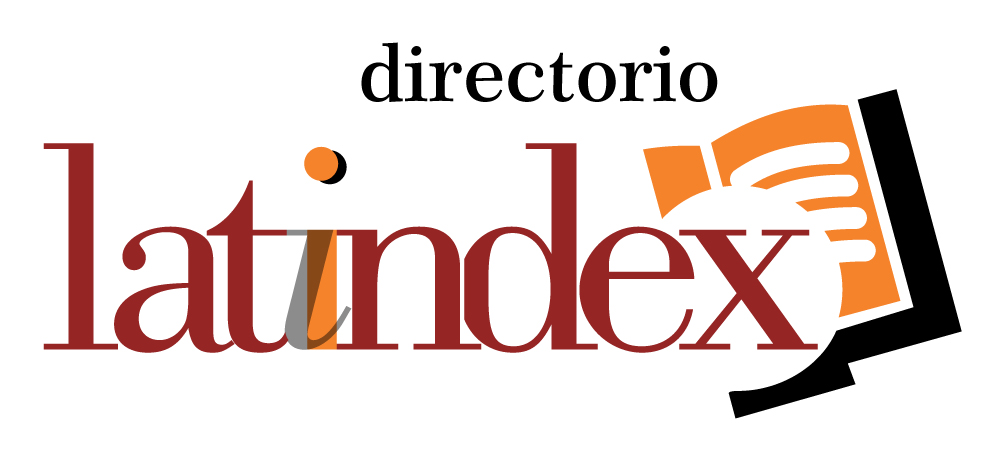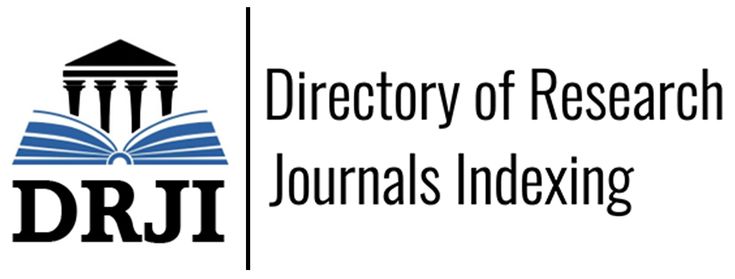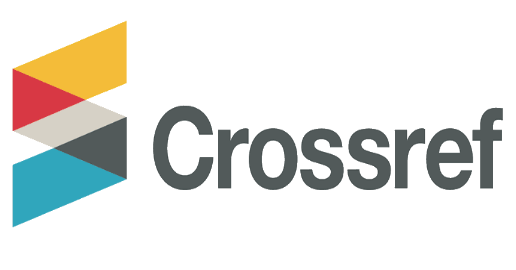Implicaciones del modelo industria 4.0 en la agroindustria: revisión sistemática
Implications the industry 4.0 model at agroindustry: systematic review
DOI:
https://doi.org/10.61210/kany.v2iI.75Palabras clave:
Industria 4.0, Transformación digital, Fabricación, Productividad, InnovaciónResumen
El modelo de economía circular propone una serie de componentes tecnológicos digitales, que son facilitadores claves para la eficiente y sostenible producción de bienes y servicios. Sin embargo, las aplicaciones de este modelo en el sector agroindustrial permanecen en investigaciones progresivas, en algunos casos con limitados estudios en esta área. La metodología empleada siguió los procedimientos de una revisión sistemática de literatura, bajo el enfoque PRISMA. El principal objetivo de la presente revisión es proporcionar una descripción general de las aplicaciones del modelo de economía circular, incidiendo en la introducción y uso de la robótica, sensores inteligentes, técnicas de procesamiento emergente, inteligencia artificial, big data y el internet de las cosas en el sector agroindustrial y agroalimentario. El modelo Industria 4.0, plantea al sector industrial la incorporación de la robótica y otros dispositivos inteligentes para desarrollar procesos automatizados, que permitan mejorar la toma de decisiones y afrontar los cambios y exigencias del mercado. Entre de los principales hallazgos de nuestra exploración se destaca el incremento de estudios sobre inteligencia artificial, tecnología robótica emergente, sensores y softwares avanzados, que se combinan para contribuir a la solución de problemas del sector manufacturero, específicamente en los procesos pre y post productivos, en la gestión de la cadena de suministro y la obtención de productos que demanda el consumidor de estos tiempos. Finalmente, la revisión examina las consideraciones actuales e identifica las principales brechas para el desarrollo de futuras investigaciones.
Citas
Abbate, S., Centobelli, P., & Cerchione, R. (2023). The digital and sustainable transition of the agri-food sector. Technological Forecasting and Social Change, 187, 122222. https://doi.org/10.1016/J.TECHFORE.2022.122222
Accorsi, R., Tufano, A., Gallo, A., Galizia, F. G., Cocchi, G., Ronzoni, M., Abbate, A., & Manzini, R. (2019). An application of collaborative robots in a food production facility. Procedia Manufacturing, 38(2019), 341–348. https://doi.org/10.1016/j.promfg.2020.01.044
Ali, P. R., Machfud, M., Sukardi, S., Noor, E., & Purnomo, D. (2023). Indonesian agroindustry business agility: Enablers and challenges in the poultry industry based on ISM model. Heliyon, 9(6), e16808. https://doi.org/10.1016/j.heliyon.2023.e16808
Aravindaraj, K., & Rajan Chinna, P. (2022). A systematic literature review of integration of industry 4.0 and warehouse management to achieve Sustainable Development Goals (SDGs). Cleaner Logistics and Supply Chain, 5, 100072. https://doi.org/10.1016/J.CLSCN.2022.100072
Bakalis, S., Gerogiorgis, D., Argyropoulos, D., & Emmanoulidis, C. (2022). Food Industry 4.0: Opportunities for a digital future. Food Engineering Innovations Across the Food Supply Chain, 357–368. https://doi.org/10.1016/B978-0-12-821292-9.00011-X
Becker, D., Schmitt, C., Bovetto, L., Rauh, C., McHardy, C., & Hartmann, C. (2023). Optimization of complex food formulations using robotics and active learning. Innovative Food Science & Emerging Technologies, 83, 103232. https://doi.org/10.1016/J.IFSET.2022.103232
Ben Ayed, R., & Hanana, M. (2021). Artificial Intelligence to Improve the Food and Agriculture Sector. Journal of Food Quality, 2021. https://doi.org/10.1155/2021/5584754
Bianco, D., Bueno, A., Godinho Filho, M., Latan, H., Miller Devós Ganga, G., Frank, A. G., & Chiappetta Jabbour, C. J. (2023). The role of Industry 4.0 in developing resilience for manufacturing companies during COVID-19. International Journal of Production Economics, 256, 108728. https://doi.org/10.1016/J.IJPE.2022.108728
Bigliardi, B. (2021). Industry 4.0 Applied to Food. Sustainable Food Processing and Engineering Challenges, 1–23. https://doi.org/10.1016/B978-0-12-822714-5.00001-2
Bigliardi, B., Bottani, E., Casella, G., Filippelli, S., Pini, B., & Gianatti, E. (2023). Industry 4 . 0 in the agrifood supply chain : a review. Procedia Computer Science, 217, 1755–1764. https://doi.org/10.1016/j.procs.2022.12.375
Bronson, K., & Knezevic, I. (2016). Big Data in food and agriculture. Http://Dx.Doi.Org/10.1177/2053951716648174, 3(1). https://doi.org/10.1177/2053951716648174
Caiado, R. G. G., Scavarda, L. F., Gavião, L. O., Ivson, P., Nascimento, D. L. de M., & Garza-Reyes, J. A. (2021). A fuzzy rule-based industry 4.0 maturity model for operations and supply chain management. International Journal of Production Economics, 231, 107883. https://doi.org/10.1016/J.IJPE.2020.107883
Campbell, M., McKenzie, J. E., Sowden, A., Katikireddi, S. V., Brennan, S. E., Ellis, S., Hartmann-Boyce, J., Ryan, R., Shepperd, S., Thomas, J., Welch, V., & Thomson, H. (2020). Synthesis without meta-analysis (SWiM) in systematic reviews: reporting guideline. BMJ, 368. https://doi.org/10.1136/BMJ.L6890
Castelo-Branco, I., Amaro-Henriques, M., Cruz-Jesus, F., & Oliveira, T. (2023). Assessing the Industry 4.0 European divide through the country/industry dichotomy. Computers & Industrial Engineering, 176, 108925. https://doi.org/10.1016/J.CIE.2022.108925
Dadhaneeya, H., Nema, P. K., & Arora, V. K. (2023). Internet of Things in food processing and its potential in Industry 4.0 era: A review. Trends in Food Science & Technology, 139, 104109. https://doi.org/10.1016/J.TIFS.2023.07.006
Derossi, A., Di Palma, E., Moses., J. A., Santhoshkumar, P., Caporizzi, R., & Severini, C. (2023). Avenues for non-conventional robotics technology applications in the food industry. Food Research International, 173, 113265. https://doi.org/10.1016/J.FOODRES.2023.113265
Ghobakhloo, M. (2020). Industry 4.0, digitization, and opportunities for sustainability. Journal of Cleaner Production, 252, 119869. https://doi.org/10.1016/J.JCLEPRO.2019.119869
Goti, A., Akyazi, T., Alberdi, E., Oyarbide, A., & Bayon, F. (2022). Future skills requirements of the food sector emerging with industry 4.0. Innovation Strategies in the Food Industry: Tools for Implementation, Second Edition, 253–285. https://doi.org/10.1016/B978-0-323-85203-6.00011-6
Hassoun, A., Jagtap, S., Garcia-Garcia, G., Trollman, H., Pateiro, M., Lorenzo, J. M., Trif, M., Rusu, A. V., Aadil, R. M., Šimat, V., Cropotova, J., & Câmara, J. S. (2023). Food quality 4.0: From traditional approaches to digitalized automated analysis. Journal of Food Engineering, 337, 111216. https://doi.org/10.1016/J.JFOODENG.2022.111216
Hassoun, A., Jagtap, S., Trollman, H., Garcia-Garcia, G., Abdullah, N. A., Goksen, G., Bader, F., Ozogul, F., Barba, F. J., Cropotova, J., Munekata, P. E. S., & Lorenzo, J. M. (2023). Food processing 4.0: Current and future developments spurred by the fourth industrial revolution. Food Control, 145, 109507. https://doi.org/10.1016/J.FOODCONT.2022.109507
Hassoun, A., Prieto, M. A., Carpena, M., Bouzembrak, Y., Marvin, H. J. P., Pallarés, N., Barba, F. J., Punia Bangar, S., Chaudhary, V., Ibrahim, S., & Bono, G. (2022). Exploring the role of green and Industry 4.0 technologies in achieving sustainable development goals in food sectors. Food Research International, 162, 112068. https://doi.org/10.1016/J.FOODRES.2022.112068
Husaini, A. M., & Sohail, M. (2023). Robotics-assisted, organic agricultural-biotechnology based environment-friendly healthy food option: Beyond the binary of GM versus Organic crops. Journal of Biotechnology, 361, 41–48. https://doi.org/10.1016/J.JBIOTEC.2022.11.018
Islam, S., Manning, L., & Cullen, J. M. (2022). Selection criteria for planning cold food chain traceability technology enabling industry 4.0. Procedia Computer Science, 200, 1695–1704. https://doi.org/10.1016/j.procs.2022.01.370
Jagtap, S., Garcia-Garcia, G., & Rahimifard, S. (2021). Optimisation of the resource efficiency of food manufacturing via the Internet of Things. Computers in Industry, 127, 103397. https://doi.org/10.1016/J.COMPIND.2021.103397
Jagtap, S., Saxena, P., & Salonitis, K. (2021). Food 4.0: Implementation of the Augmented Reality Systems in the Food Industry. Procedia CIRP, 104, 1137–1142. https://doi.org/10.1016/J.PROCIR.2021.11.191
Klingenberg, C. O., Borges, M. A. V., & Antunes, J. A. do V. (2022). Industry 4.0: What makes it a revolution? A historical framework to understand the phenomenon. Technology in Society, 70, 102009. https://doi.org/10.1016/J.TECHSOC.2022.102009
Kumar, S., Raut, R. D., Nayal, K., Kraus, S., Yadav, V. S., & Narkhede, B. E. (2021). To identify industry 4.0 and circular economy adoption barriers in the agriculture supply chain by using ISM-ANP. Journal of Cleaner Production, 293, 126023. https://doi.org/10.1016/J.JCLEPRO.2021.126023
Kunkel, S., Neuhäusler, P., Matthess, M., & Dachrodt, M. F. (2023). Industry 4.0 and energy in manufacturing sectors in China. Renewable and Sustainable Energy Reviews, 188, 113712. https://doi.org/10.1016/J.RSER.2023.113712
Lahane, S., Paliwal, V., & Kant, R. (2023). Evaluation and ranking of solutions to overcome the barriers of Industry 4.0 enabled sustainable food supply chain adoption. Cleaner Logistics and Supply Chain, 8, 100116. https://doi.org/10.1016/J.CLSCN.2023.100116
Latino, M. E., Menegoli, M., Lazoi, M., & Corallo, A. (2022). Voluntary traceability in food supply chain: a framework leading its implementation in Agriculture 4.0. Technological Forecasting and Social Change, 178, 121564. https://doi.org/10.1016/J.TECHFORE.2022.121564
Liao, Y., Deschamps, F., Loures, E. de F. R., & Ramos, L. F. P. (2017). Past, present and future of Industry 4.0 - a systematic literature review and research agenda proposal. Https://Doi.Org/10.1080/00207543.2017.1308576, 55(12), 3609–3629. https://doi.org/10.1080/00207543.2017.1308576
Luque, A., Peralta, M. E., de las Heras, A., & Córdoba, A. (2017). State of the Industry 4.0 in the Andalusian food sector. Procedia Manufacturing, 13, 1199–1205. https://doi.org/10.1016/j.promfg.2017.09.195
Marcon, É., Le Dain, M. A., & Frank, A. G. (2022). Designing business models for Industry 4.0 technologies provision: Changes in business dimensions through digital transformation. Technological Forecasting and Social Change, 185, 122078. https://doi.org/10.1016/J.TECHFORE.2022.122078
Meindl, B., Ayala, N. F., Mendonça, J., & Frank, A. G. (2021). The four smarts of Industry 4.0: Evolution of ten years of research and future perspectives. Technological Forecasting and Social Change, 168, 120784. https://doi.org/10.1016/J.TECHFORE.2021.120784
Mirabelli, G., Nicoletti, L., Padovano, A., Solina, V., Mirabelli, G., Solina, V., Althea, K., & Nervoso, A. (2023). Exploring the Role of Industry 4 . 0 and Simulation as a Solution to Exploring the the COVID-19 Role of Industry Simulation as a Solution to Outbreak : a Literature Review the COVID-19 Outbreak : a Literature Review. Procedia Computer Science, 217(2022), 1918–1929. https://doi.org/10.1016/j.procs.2022.12.392
Miranda-Ackerman, M. A., & Colín-Chávezbc, C. (2019). Food Supply Chain Demand and Optimization. Encyclopedia of Food Security and Sustainability, 455–464. https://doi.org/10.1016/B978-0-08-100596-5.22278-6
Moher, D., Liberati, A., Tetzlaff, J., Altman, D. G., Antes, G., Atkins, D., Barbour, V., Barrowman, N., Berlin, J. A., Clark, J., Clarke, M., Cook, D., D’Amico, R., Deeks, J. J., Devereaux, P. J., Dickersin, K., Egger, M., Ernst, E., Gøtzsche, P. C., … Tugwell, P. (2009). Preferred Reporting Items for Systematic Reviews and Meta-Analyses: The PRISMA Statement. PLOS Medicine, 6(7), e1000097. https://doi.org/10.1371/JOURNAL.PMED.1000097
Monshizadeh, F., Sadeghi Moghadam, M. R., Mansouri, T., & Kumar, M. (2023). Developing an industry 4.0 readiness model using fuzzy cognitive maps approach. International Journal of Production Economics, 255, 108658. https://doi.org/10.1016/J.IJPE.2022.108658
Monteiro, J., & Barata, J. (2021). Artificial Intelligence in Extended Agri-Food Supply Chain: A Short Review Based on Bibliometric Analysis. Procedia Computer Science, 192, 3020–3029. https://doi.org/10.1016/J.PROCS.2021.09.074
Morchid, A., El Alami, R., Raezah, A. A., & Sabbar, Y. (2023). Applications of internet of things (IoT) and sensors technology to increase food security and agricultural Sustainability: Benefits and challenges. Ain Shams Engineering Journal, 102509. https://doi.org/10.1016/J.ASEJ.2023.102509
Nagarajan, S. M., Deverajan, G. G., Chatterjee, P., Alnumay, W., & Muthukumaran, V. (2022). Integration of IoT based routing process for food supply chain management in sustainable smart cities. Sustainable Cities and Society, 76, 103448. https://doi.org/10.1016/J.SCS.2021.103448
Paraginski, A. L. (2014). A natureza das inovações em agroindústrias de arroz do rio grande do sul. INMR - Innovation & Management Review, 11(1), 55–72. https://doi.org/10.5773/rai.v11i1.1053
Schöggl, J., Rusch, M., Stumpf, L., & Baumgartner, R. J. (2023). Implementation of digital technologies for a circular economy and sustainability management in the manufacturing sector. Sustainable Production and Consumption, 35, 401–420. https://doi.org/10.1016/j.spc.2022.11.012
Schwab, K. (2017). The fourth industrial revolution (P. Penguin (ed.)). Penguin, Portfolio. https://www.penguin.co.uk/books/304971/the-fourth-industrial-revolution-by-schwab-klaus/9780241300756
Stefanini, R., & Vignali, G. (2022). The Environmental, Economic and Social Impact of Industry 4.0 in the Food Sector: a Descriptive Literature Review. IFAC-PapersOnLine, 55(10), 1497–1502. https://doi.org/10.1016/J.IFACOL.2022.09.602
Swenja, S., Maximilian, P., & Thomas, S. (2022). Evolution of Pick-by-Light Concepts for Assembly Workstations to improve the Efficiency in Industry 4.0. Procedia Computer Science, 204, 37–44. https://doi.org/10.1016/J.PROCS.2022.08.005
Talari, G., Cummins, E., McNamara, C., & O’Brien, J. (2022). State of the art review of Big Data and web-based Decision Support Systems (DSS) for food safety risk assessment with respect to climate change. Trends in Food Science & Technology, 126, 192–204. https://doi.org/10.1016/J.TIFS.2021.08.032
Tamasiga, P., Ouassou, E. houssin, Onyeaka, H., Bakwena, M., Happonen, A., & Molala, M. (2023). Forecasting disruptions in global food value chains to tackle food insecurity: The role of AI and big data analytics – A bibliometric and scientometric analysis. Journal of Agriculture and Food Research, 14, 100819. https://doi.org/10.1016/J.JAFR.2023.100819
Uttama, N. P. (2021). Open Innovation and Business Model of Health Food Industry in Asia. Journal of Open Innovation: Technology, Market, and Complexity, 7(3), 174. https://doi.org/10.3390/JOITMC7030174
Vaidya, S., Ambad, P., & Bhosle, S. (2018). Industry 4.0 – A Glimpse. Procedia Manufacturing, 20, 233–238. https://doi.org/10.1016/J.PROMFG.2018.02.034
Virmani, N., Sharma, S., Kumar, A., & Luthra, S. (2023). Adoption of industry 4.0 evidence in emerging economy: Behavioral reasoning theory perspective. Technological Forecasting and Social Change, 188, 122317. https://doi.org/10.1016/J.TECHFORE.2023.122317
Wolfert, S., Verdouw, C., van Wassenaer, L., Dolfsma, W., & Klerkx, L. (2023). Digital innovation ecosystems in agri-food: design principles and organizational framework. Agricultural Systems, 204, 103558. https://doi.org/10.1016/J.AGSY.2022.103558
Yang, L., Zou, H., Shang, C., Ye, X., & Rani, P. (2023). Adoption of information and digital technologies for sustainable smart manufacturing systems for industry 4.0 in small, medium, and micro enterprises (SMMEs). Technological Forecasting and Social Change, 188, 122308. https://doi.org/10.1016/J.TECHFORE.2022.122308
Zangara, G., Cosma, A., & Filice, L. (2023). Impact analysis of Industry 4.0 in SMEs: Harmonic innovation as a virtuous evolution for the community development. Procedia Computer Science, 217, 1370–1377. https://doi.org/10.1016/J.PROCS.2022.12.335
Archivos adicionales
Publicado
Cómo citar
Licencia
Derechos de autor 2024 Perfecto Chagua Rodríguez, Larry Oscar Chañi Paucar, Rafael Malpartida Yapias, Grimaldo Quispe Santivañez, Walter Cuadrado Campó, Rober Henry Javier Ninahuaman, Anibal Luciano Alipio, Rebeca Salvador Reyes

Esta obra está bajo una licencia internacional Creative Commons Atribución-NoComercial-CompartirIgual 4.0.
Eres libre de:
- Compartir — copiar y redistribuir el material en cualquier medio o formato
- Adaptar : remezclar, transformar y construir sobre el material.
Bajo los siguientes términos:
-
Reconocimiento : debe otorgar el crédito correspondiente, proporcionar un enlace a la licencia e e indicar si se realizaron cambios.
-
No comercial : no puede utilizar el material con fines comerciales.
-
ShareAlike : si remezcla, transforma o construye a partir del material, debe distribuir sus contribuciones bajo la misma licencia que el original.











